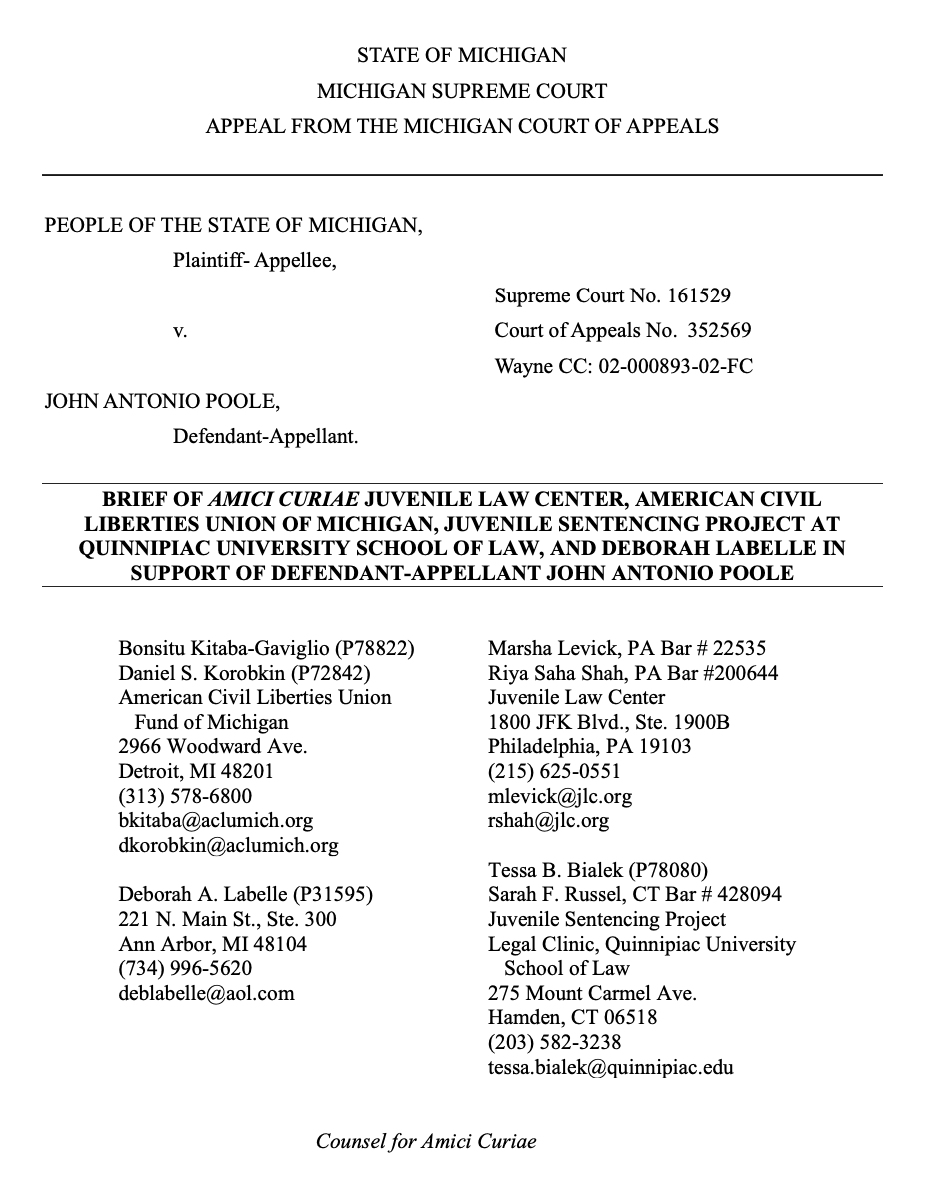
Summary of Argument
In Miller v Alabama, the United States Supreme Court ruled that mandatory life without parole sentences are unconstitutional for individuals who were under age 18 at the time of their offenses under the Eighth Amendment’s prohibition on cruel and unusual punishment. 567 US 460, 465; 132 S Ct 2455; 183 L Ed 2d 407 (2012). The Court, relying on the same underlying scientific research used to bar the death penalty for juveniles, held that children are less culpable than their adult counterparts because of their immaturity, impetuosity, susceptibility to peer influence, and greater capacity for change. Id. at 471-72. Further research now confirms that young people retain these characteristics beyond age 18. Because older adolescents retain the same cognitive characteristics that courts have determined render youth less culpable than adults, mandatory life without parole sentences for this population are also disproportionate under both the Eighth Amendment and Article 1, § 16, of Michigan’s 1963 Constitution. Indeed, in recognition of the current developmental research, jurisdictions around the country are increasingly raising the age of adulthood above age 18 in situations that implicate the developmental characteristics relied upon in Miller, reinforcing how current sentencing practices wrongly turn on the arbitrary boundary of age 18. Further, as courts around the country have considered age and its attendant characteristics in sentencing even older adolescents, they have consistently found them less deserving of the harshest available penalties. Amici urge this Court to find that 18-year-olds, like John Antonio Poole, are developmentally indistinguishable from defendants under age 18 and therefore cannot constitutionally be sentenced to mandatory life without parole because such a sentence would be cruel or unusual under Article 1, § 16 of Michigan’s Constitution and would defy the rule set forth in Miller.